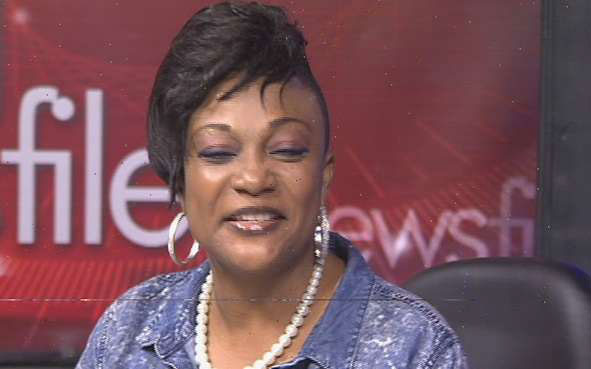
Ghana’s gender minister causes storm over rape comments
Accra, Ghana | AFP | Ghana’s new gender minister has warned schoolgirls that what they wear can attract rapists, sparking controversy and debate in a traditional but evolving society.
Otiko Djaba told girls at a senior school in eastern Ghana they should demand respect and equality but added short dresses “can attract someone who would want to rape or defile you.
“You must be responsible for the choices you make,” she said during a visit last week.
The minister’s comments have been widely criticised, with many arguing they wrongly place the blame for rape and sexual assault on the victim rather than the perpetrator.
Djaba joins a growing list of political figures around the world who have caused outrage by making a direct link between what a woman wears and rape.
Ghana, which has seen rapid growth in recent years, remains socially conservative: in a 2012 survey, 96 percent of Ghanaians described themselves as religious.
Clothing for girls and women is a mix of Western imports and traditional print fabrics that are used for tailor-made outfits.
Above-the-knee dresses and skirts are not uncommon, particularly in cities such as the capital, Accra.
But feminist and sex educationalist Nana Akosua Hanson said women who wear short skirts still attract unwanted attention.
– Conservative views –
On the street, many women said the fear of being judged and leered at, as well as advice from church, stopped them from wearing less, even in temperatures that rarely dip below 30 degrees Celsius (86 degrees Fahrenheit).
“If I do it, I know it will attract men,” said retail worker Stella Brew, 19, wearing a white, knee-length dress.
The teenager said her church also preached against “provocative” clothing. “It makes the one who gets attracted to you to sin,” she told AFP.
Boatemaa Akua Benedicte, a 24-year-old nursing graduate wearing a flared dress with an African print headband, said a woman was responsible if she was attacked while wearing a short skirt.
The rapist should shoulder only some of the blame, she added.
High school student Maria Abdullha, 17, also shied away from short dresses. “If you wear short clothing, people will think bad about you,” she said.
Hanson said Djaba’s comments — and those of the women in the street — showed such views remained pervasive in Ghanaian society.
But she said the outcry, particularly on social media, indicated there had been a “serious rise in consciousness” about the issue of rape and sexual assault.
Hanson runs sex education workshops for young people in Accra, focusing on consent and tackling rape culture.
She said the minister had at least opened up a public debate about the issue.
– Shifts burden –
Accra-based journalist Nana Ama Agyemang Asante has spoken out against Djaba on social media and radio programmes.
She told AFP she understood Djaba was trying to ensure girls’ safety but described the theory that clothing prevents or invites rape as “sexist and stupid”.
It “absolves the rapist of any responsibility for his actions (and) shifts the burden of preventing rape to the woman”, she added.
The comments did little to change the reluctance among Ghanaian women to report rape for fear of being shamed or blamed, she said.
The results of a 2015 government survey suggested that 30 percent of women would face some form of sexual violence in their lifetime.
The same study indicated nearly two-thirds of women believed a woman was to blame for rape if she wore revealing clothes: just over half of all male respondents (56.2 percent) agreed.
Statistics for sexual and gender-based violence were not immediately available but last year the previous administration reportedly said only 4.4 percent of cases made it to court.
Djaba, who has two daughters and a son, has defended her comments, telling local media she was dispensing “strong advice from a mother to her children”.
“I wasn’t in anyway encouraging rape with my comments,” she added.
 The Independent Uganda: You get the Truth we Pay the Price
The Independent Uganda: You get the Truth we Pay the Price



